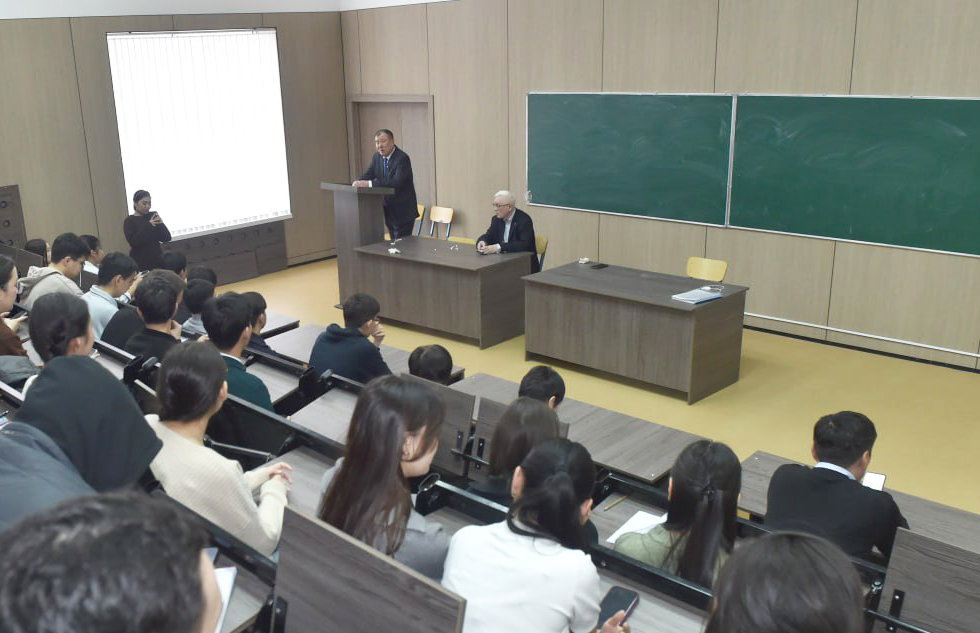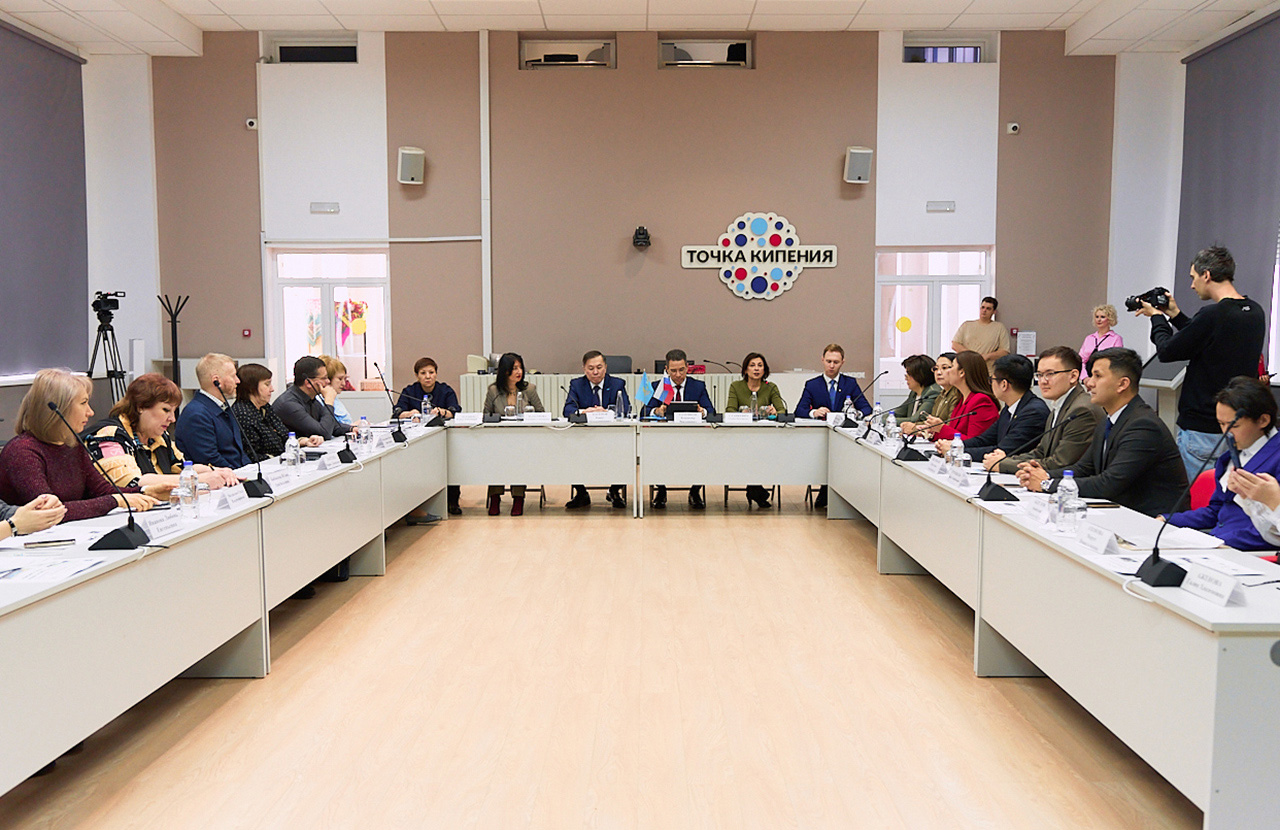SDG 17. Strengthening the Global Partnership for Sustainable Development

An international seminar on the topic was held at the Al-Farabi Kazakh National University at the Faculty of Law: "Improving the digitalization of public services in the era of globalization." This seminar is dedicated to the 90th anniversary of the Al-Farabi Kazakh National University.
Organizers:
R.E. Dzhansaraeva – Doctor of Law, Professor, Head of the Department of Criminal Law, Criminal Procedure and Criminalistics. Al-Farabi Kazakh National University.
K.R. Useinova is a Candidate of Law, Head of the Department of Theory and History of State and Law, Constitutional and Administrative Law. Al-Farabi Kazakh National University.
Performed:
Gutsko E.K. – Grodno State University named after Yanka Kupala, PhD student at the Department of Criminal Law. The Republic of Belarus.
Ibraуeva A.S.– Doctor of Law, Professor of the Department of Theory and History of State and Law, Constitutional and Administrative Law of Al-Farabi Kazakh National University. Topic: The era of globalization, digitalization and human rights
Kalisheva N.H. – Doctor of Law, Associate Professor of the Department of Theory and History of State and Law, Constitutional and Administrative Law. Topic "Digital services in the light of the Concept of digital transformation in the New Kazakhstan".
Kultemirova L.T. Candidate of Law, Associate Professor, Senior Researcher at the SIC of the Almaty Academy of the Ministry of Internal Affairs of the Republic of Kazakhstan named after M.E.Esbulatov. Topic: The impact of digitalization in the activities of government agencies on the transformation of the quality of public services.
Aratuly K. – PhD Doctor, Associate Professor of the Department of Criminal Law, Criminal Procedure and Criminalistics. The topic is "Neuropsychological functioning and antisocial behavior", "Neuropsychological functioning and antisocial behavior".
From the speeches of the speakers.
Doctor of Law, Professor Ibraуeva A.S. The term globalization has firmly entered our lives. The features of globalization are the standardization and unification of the legislative framework, the convergence of cultures of different countries, the movement of capital, and the migration of labor. The characteristic features of the new world are the emergence of new types of threats related to the Internet and digitalization. Digitalization is aimed at providing the maximum number of public services to the population in electronic format. Digitalization has both positive and negative sides. In this regard, legal literacy of the population, and especially financial literacy, is necessary.
Doctor of Law, Associate Professor Kalisheva N.H. Important tools of public administration are the state program "Digital Kazakhstan", "The concept of digital transformation". These documents are based on important priorities: the development of "human-centricity"; creation of favorable conditions for the IT industry; large-scale modernization of the IT infrastructure; development of the digital economy and Industry 4.0; strengthening of human capital.
Special attention should be paid to ensuring security, creating effective legal security levers to prevent the leakage of personal data.
PhD in Law, Associate Professor Kultemirova L.T. Digitalization in the provision of public services has become the most important information technology project of the Republic of Kazakhstan. The project was launched by the state programs for the formation and development of "electronic government" and "Information Kazakhstan 2020". At the moment, there is an accelerated digitalization of public services. At the same time, the emphasis is on the development of the eGov mobile application. Services are provided on the principles of extraterritoriality, proactivity and compositeness. The administrative nature of public services is being transformed into a service one, which is the solution to one of the tasks of forming a service-oriented "human-centered" model of public administration
PhD in Law, Associate Professor Aratula K.
According to the theory of antisocial behavior of children, two main differences in the etymology of offenders are revealed. The first type can be attributed to the antisocial behavior of children due to their difficult adolescence, which recedes as they grow older.
The second type is nihilistic human behavior, which continues throughout life. This is most often due to the fact that children imitate adults by copying their behaviors, such as smoking, drinking alcoholic beverages, gambling, watching pornographic materials, etc. And this process depends on the frequency and frequency of such behavior in their lives.
A discussion on these issues took place at the international seminar.



